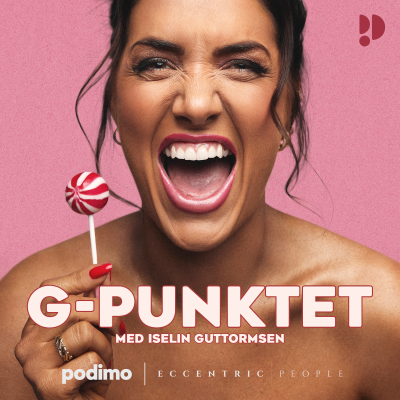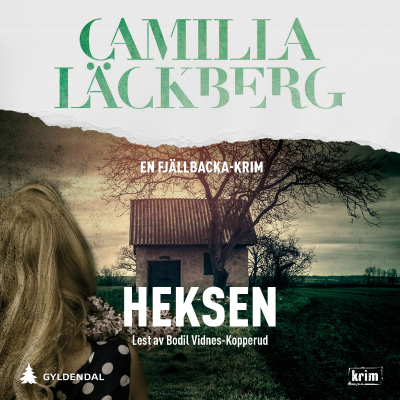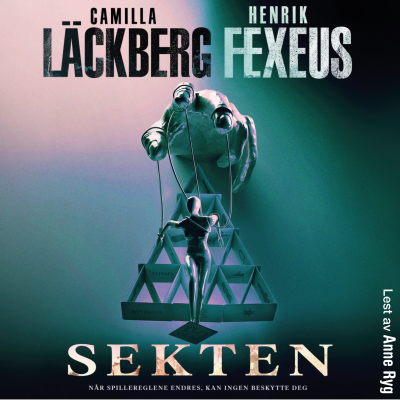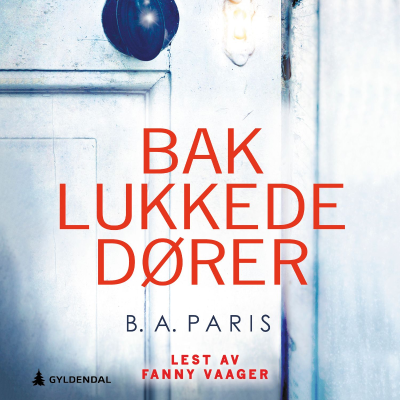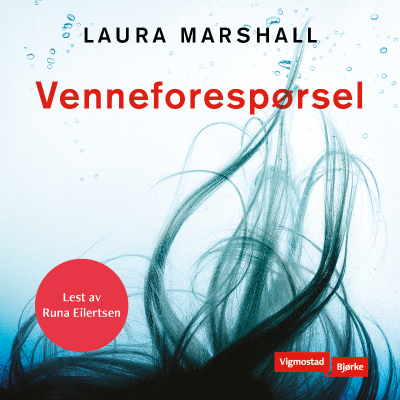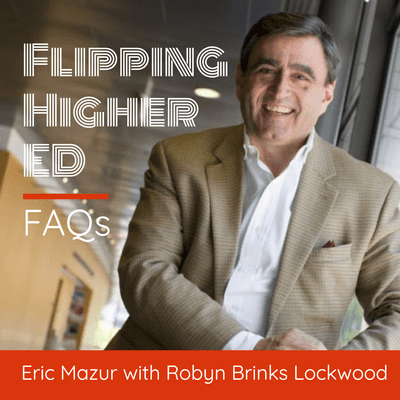
Flipping Higher Ed | FAQs with Eric Mazur and Robyn Brinks Lockwood
Podkast av BAM Radio Network
The COVID-19 pandemic forced higher education faculty around the world to stop and rethink how to teach their courses. For many, this was the first time they had given any serious thought to the science and art of teaching. The pandemic created a new universe of educators who are new to Flipped Learning and want to learn more about how to do it well. In each episode of this podcast, Harvard professor Eric Mazur and Stanford's Robyn Brinks Lockwood answer a frequently asked question about flipping instruction in higher education.
Prøv gratis i 3 dager
99,00 kr / Måned etter prøveperioden.Avslutt når som helst.
Alle episoder
6 EpisoderIn this episode, we answer a question many professors ask about assigning pre-class homework and linking it to the active learning you will do during class time. Follow on Twitter: @eric_mazur @bamradionetwork @Jonharper70bd #flipclass #flipclasschat #flippedlearning Resources: Perusall Exchange | Three-Minute EdTalks Dr. Eric Mazur is the Balkanski Professor of Physics and Applied Physics and Dean of Applied Physics at Harvard University, Member of the Faculty of Education at the Harvard Graduate School of Education, and Past President of the Optical Society. Mazur is an internationally recognized educational innovator. In education, he is widely known for his work on Peer Instruction, an interactive teaching method aimed at engaging students in the classroom and beyond. In 2014 Mazur became the inaugural recipient of the Minerva Prize for Advancements in Higher Education. He has received many awards for his work in physics and in education and has founded several successful companies. He has written extensively on education and is the author of Peer Instruction: A User’s Manual (Prentice Hall, 1997), a book that explains how to teach large lecture classes interactively. Robyn Brinks Lockwood teaches courses in English listening, speaking, and writing for international graduate students at Stanford University. She is also the education coordinator of the American Language and Culture undergraduate summer program. She is an active member of the international TESOL organization, serves as the ad-hoc consultant for the Publishing Professional Council, and is a past chair of the Materials Writers Interest Section. She is a frequent presenter at TESOL regional and international conferences. Robyn has edited and written numerous textbooks, online courses, video programs, and teacher’s ancillaries for second-language writing, speaking, and listening English courses and TOEFL preparation. Her publications include those of University of Michigan Press, Macmillan Education, Cambridge University Press, Pearson, and McGraw-Hill.
Dr. Eric Mazur with Robyn Brinks Lockwood In this episode, we answer a question many professors ask when they view lecture as the only effective way to teach their specific subject. Follow on Twitter: @eric_mazur @bamradionetwork @Jonharper70bd #flipclass #flipclasschat #flippedlearning Resources: Perusall Exchange | Three-Minute EdTalks Dr. Eric Mazur is the Balkanski Professor of Physics and Applied Physics and Dean of Applied Physics at Harvard University, Member of the Faculty of Education at the Harvard Graduate School of Education, and Past President of the Optical Society. Mazur is an internationally recognized educational innovator. In education, he is widely known for his work on Peer Instruction, an interactive teaching method aimed at engaging students in the classroom and beyond. In 2014 Mazur became the inaugural recipient of the Minerva Prize for Advancements in Higher Education. He has received many awards for his work in physics and in education and has founded several successful companies. He has written extensively on education and is the author of Peer Instruction: A User’s Manual (Prentice Hall, 1997), a book that explains how to teach large lecture classes interactively. Robyn Brinks Lockwood teaches courses in English listening, speaking, and writing for international graduate students at Stanford University. She is also the education coordinator of the American Language and Culture undergraduate summer program. She is an active member of the international TESOL organization, serves as the ad-hoc consultant for the Publishing Professional Council, and is a past chair of the Materials Writers Interest Section. She is a frequent presenter at TESOL regional and international conferences. Robyn has edited and written numerous textbooks, online courses, video programs, and teacher’s ancillaries for second-language writing, speaking, and listening English courses and TOEFL preparation. Her publications include those of University of Michigan Press, Macmillan Education, Cambridge University Press, Pearson, and McGraw-Hill.
In this episode, we talk about how (and why) the focus on tests, exams, and grades is at odds with the fundamental value of flipped instruction - namely authentic learning. But more importantly, what can we do about it? Follow on Twitter: @eric_mazur @bamradionetwork @Jonharper70bd #flipclass #flipclasschat #flippedlearning Resources: Perusall Exchange | Three-Minute EdTalks Dr. Eric Mazur is the Balkanski Professor of Physics and Applied Physics and Dean of Applied Physics at Harvard University, Member of the Faculty of Education at the Harvard Graduate School of Education, and Past President of the Optical Society. Mazur is an internationally recognized educational innovator. In education, he is widely known for his work on Peer Instruction, an interactive teaching method aimed at engaging students in the classroom and beyond. In 2014 Mazur became the inaugural recipient of the Minerva Prize for Advancements in Higher Education. He has received many awards for his work in physics and in education and has founded several successful companies. He has written extensively on education and is the author of Peer Instruction: A User’s Manual (Prentice Hall, 1997), a book that explains how to teach large lecture classes interactively. Robyn Brinks Lockwood teaches courses in English listening, speaking, and writing for international graduate students at Stanford University. She is also the education coordinator of the American Language and Culture undergraduate summer program. She is an active member of the international TESOL organization, serves as the ad-hoc consultant for the Publishing Professional Council, and is a past chair of the Materials Writers Interest Section. She is a frequent presenter at TESOL regional and international conferences. Robyn has edited and written numerous textbooks, online courses, video programs, and teacher’s ancillaries for second-language writing, speaking, and listening English courses and TOEFL preparation. Her publications include those of University of Michigan Press, Macmillan Education, Cambridge University Press, Pearson, and McGraw-Hill.
In this episode, we talk about what many in higher education see as one of the biggest barriers to Flipped Learning -- flipping very large classes. How can we do it? Follow on Twitter: @eric_mazur @bamradionetwork @Jonharper70bd #flipclass #flipclasschat #flippedlearning Resources: Perusall Exchange | Three-Minute EdTalks Follow on Twitter: @eric_mazur @bamradionetwork @Jonharper70bd #flipclass #flipclasschat #flippedlearning Resources: Perusall Exchange | Three-Minute EdTalks Dr. Eric Mazur is the Balkanski Professor of Physics and Applied Physics and Dean of Applied Physics at Harvard University, Member of the Faculty of Education at the Harvard Graduate School of Education, and Past President of the Optical Society. Mazur is an internationally recognized educational innovator. In education, he is widely known for his work on Peer Instruction, an interactive teaching method aimed at engaging students in the classroom and beyond. In 2014 Mazur became the inaugural recipient of the Minerva Prize for Advancements in Higher Education. He has received many awards for his work in physics and in education and has founded several successful companies. He has written extensively on education and is the author of Peer Instruction: A User’s Manual (Prentice Hall, 1997), a book that explains how to teach large lecture classes interactively. Robyn Brinks Lockwood teaches courses in English listening, speaking, and writing for international graduate students at Stanford University. She is also the education coordinator of the American Language and Culture undergraduate summer program. She is an active member of the international TESOL organization, serves as the ad-hoc consultant for the Publishing Professional Council, and is a past chair of the Materials Writers Interest Section. She is a frequent presenter at TESOL regional and international conferences. Robyn has edited and written numerous textbooks, online courses, video programs, and teacher’s ancillaries for second-language writing, speaking, and listening English courses and TOEFL preparation. Her publications include those of University of Michigan Press, Macmillan Education, Cambridge University Press, Pearson, and McGraw-Hill.
In this episode, we look at why students have to be taught how to succeed in a flipped classroom and offer an exercise to help students (and professors) quickly understand why. Follow on Twitter: @eric_mazur @bamradionetwork @Jonharper70bd #flipclass #flipclasschat #flippedlearning Resources: Perusall Exchange | Three-Minute EdTalks Dr. Eric Mazur is the Balkanski Professor of Physics and Applied Physics and Dean of Applied Physics at Harvard University, Member of the Faculty of Education at the Harvard Graduate School of Education, and Past President of the Optical Society. Mazur is an internationally recognized educational innovator. In education, he is widely known for his work on Peer Instruction, an interactive teaching method aimed at engaging students in the classroom and beyond. In 2014 Mazur became the inaugural recipient of the Minerva Prize for Advancements in Higher Education. He has received many awards for his work in physics and in education and has founded several successful companies. He has written extensively on education and is the author of Peer Instruction: A User’s Manual (Prentice Hall, 1997), a book that explains how to teach large lecture classes interactively. Robyn Brinks Lockwood teaches courses in English listening, speaking, and writing for international graduate students at Stanford University. She is also the education coordinator of the American Language and Culture undergraduate summer program. She is an active member of the international TESOL organization, serves as the ad-hoc consultant for the Publishing Professional Council, and is a past chair of the Materials Writers Interest Section. She is a frequent presenter at TESOL regional and international conferences. Robyn has edited and written numerous textbooks, online courses, video programs, and teacher’s ancillaries for second-language writing, speaking, and listening English courses and TOEFL preparation. Her publications include those of University of Michigan Press, Macmillan Education, Cambridge University Press, Pearson, and McGraw-Hill.
Prøv gratis i 3 dager
99,00 kr / Måned etter prøveperioden.Avslutt når som helst.
Eksklusive podkaster
Uten reklame
Gratis podkaster
Lydbøker
20 timer i måneden




